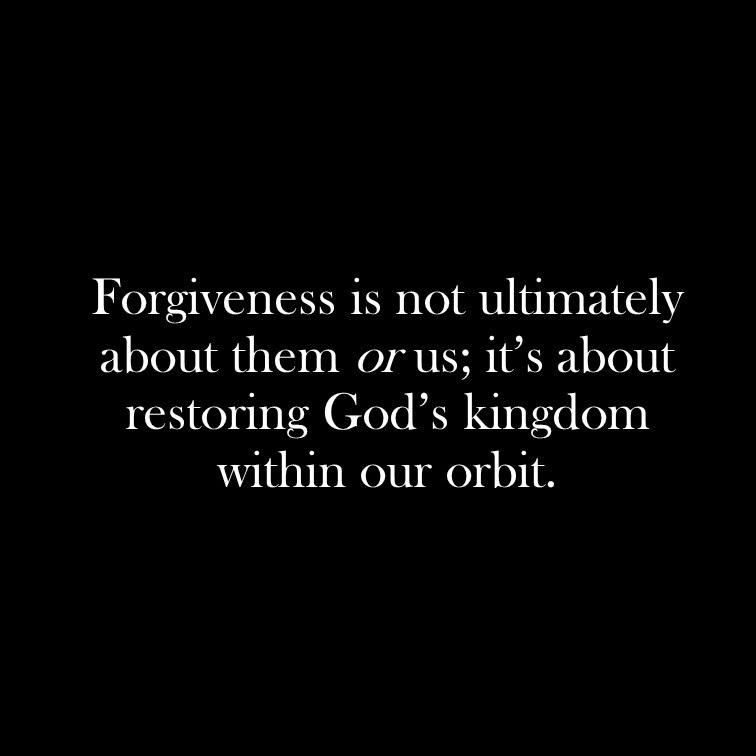God’s perfect
will is that we strive to match him in the rightness of his Word and Deed by
the rightness of our word and deed. One example of this imitation is the act of
forgiveness.
God has, by his
Word, brought all humankind into creation, and, by his Deed, he aligned, by the
actuality of action, to what was right.
Christ on the cross —
the Deed — was the completion of his Word.
Both Word and Deed
are found in perfect alignment, one with the other, which speaks to God’s
righteousness. And righteousness is reconciliation of wickedness to holiness,
of evil to good. Righteousness makes things right. It reconciles. It makes
peace.
And forgiveness
procures reconciliation. Forgiveness brings peace.
Firstly, because it’s
helpful, let’s dig into the theology of righteousness in the context of
forgiveness:
God forgives because
it’s right to forgive. It’s not because it’s just to forgive, because we, humankind, don’t actually deserve to
be forgiven, if we consider ourselves utterly culpable at the Fall. But if we
consider ourselves faulty all along, having been made with the capacity to be
fallible and given the capacity for free will, perhaps we deserve God’s justice
— which is his forgiveness — because we were bound to fall. But we read into
our present nature too much of our present nature, not having fully understood
the experienced blessedness of the first pre-Fall Adam.
No matter, we are
pardoned for our sin, due the cross of Christ, and, given the nature of the all-encompassing
concept of pardon, there is something here beyond justice. For righteousness’
sake — to make things right; to restore his creation to righteousness — Christ,
the perfect one, whom justice completely embodies, was given that we are
comprehensively forgiven.
God instituted
creation to be right in every way — which means to be consistently right — which
is to be right at all times, eternally.
Mating righteousness
(God is righteousness) with
forgiveness means to forgive is to do what is right.
We can tell
forgiveness is right by what it produces, just as we can tell that
unforgiveness is wrong by what it produces.
Forgiveness
reconciles things to the way they were originally designed to be — everything in
harmony with everything; God’s perfect design. But, unforgiveness is the
estrangement of what’s right, and everything within the orbit of unforgiveness
is estranged to the righteous goodness of God. Unforgiveness procures and
extrapolates the type of suffering that can be addressed by righteousness, and,
in that, it’s wrong.
Given that
opportunities taken to forgive are the way back into fellowship and peace with
God, we have the assurance of the rightness of the forgiving action by the
restoration it procures.
***
Forgiveness is right
as it restores relationships to God’s ultimate, harmonious design.
Forgiveness is not
ultimately about them or us; it’s
about restoring God’s kingdom within our orbit.
Forgiveness is but a
shining glory of the reconciliatory magnanimity of Christ.
Forgiveness is the
process creating the perfect imitation of the pre-Fall world.
Forgiveness is the
means by which the pre-Fall world is restored in a moment.
© 2015 S. J. Wickham.


No comments:
Post a Comment
Note: Only a member of this blog may post a comment.